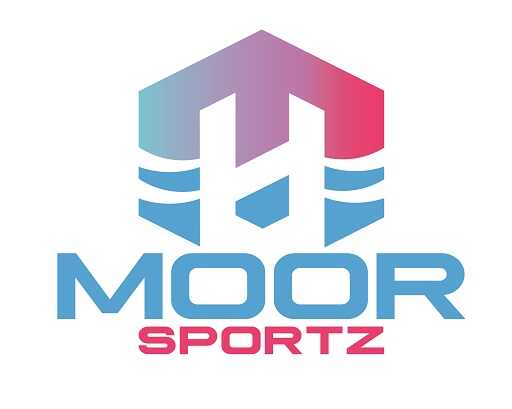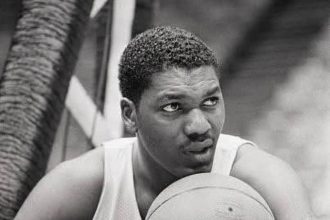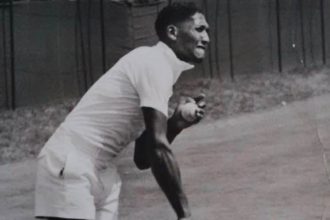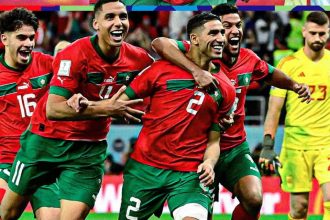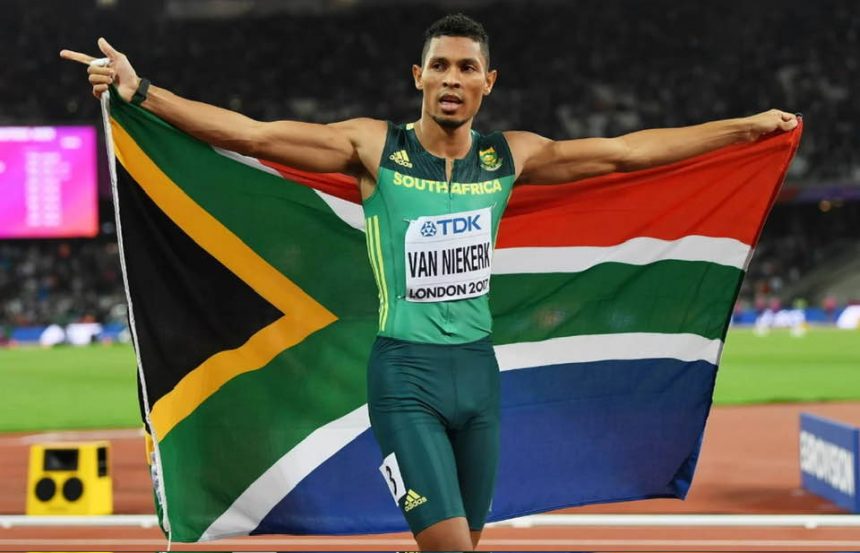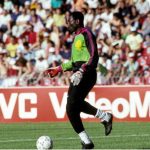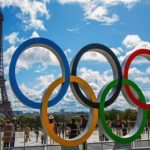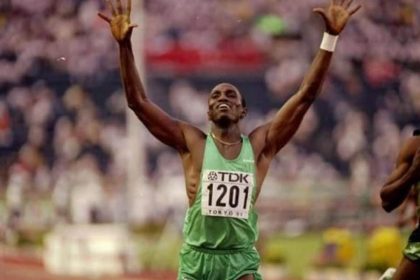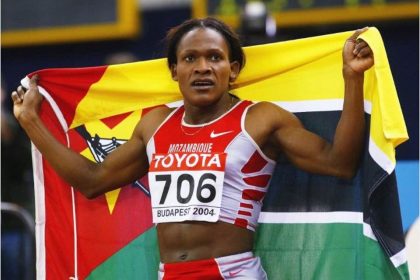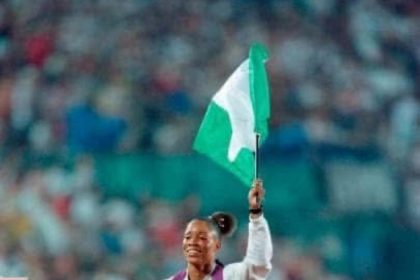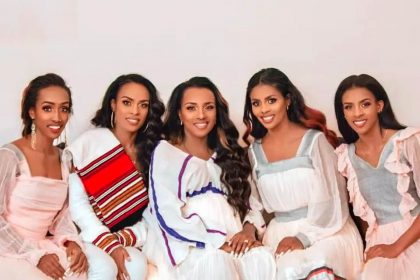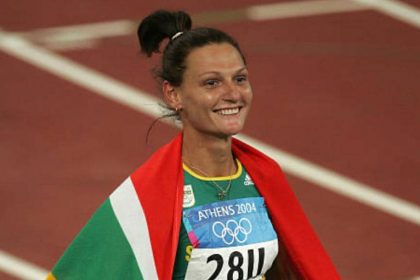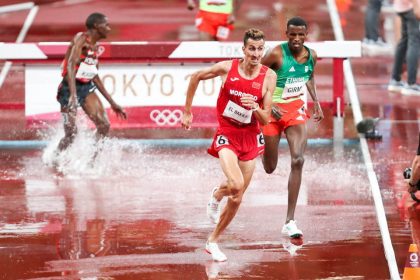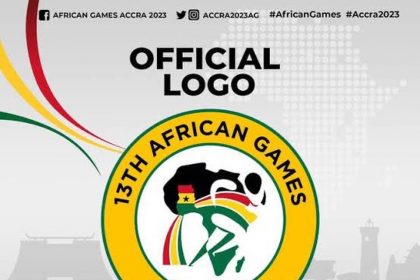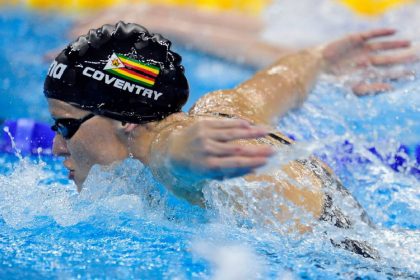10,714 athletes, 329 events in 32 sports will be participating in this Paris 2024 Summer Olympics kicking off from 26th July to 11 August, out of these a total of 1,003 athletes, representing 53 African countries, will attempt to run, jump and throw themselves into the history books. While the opening ceremony, slated for Friday, signals the official start of the Games, battles for podium places will begin on Wednesday, 24 July at the international multi-sport event. For the first time in the history of the Summer Olympic Games, the opening ceremony will not be staged in a stadium. Instead, the ambitious ceremony will be held outside of a closed stadium, with a parade on the River Seine. Approximately 120 heads of states, sovereigns and heads of government are expected to attend the eye-catching ceremony.
The Olympic Games and the World Athletics Championships represent the highest level championships of senior international outdoor athletics competition for track and field athletics globally. These are the two stages where elite athletes from all corners of the world compete with the best in different sports disciplines. This article is narrowed down to celebrate the elite men athletes from the continent who achieved pioneering successes at the pinnacles of the two major championships in track and field events. Without doubt, African men athletes came of age since the emergence of the legendary Shambel Abebe Bikila, the Ethiopian marathon runner who became the first Olympic gold medalist from the continent at the 1960 Summer Olympics in Rome while running barefoot. Since this pioneering feat by Bikila, many African men athletes have gone ahead to make history in these two international competitions and placed Africa right there on the athletics’ global map.
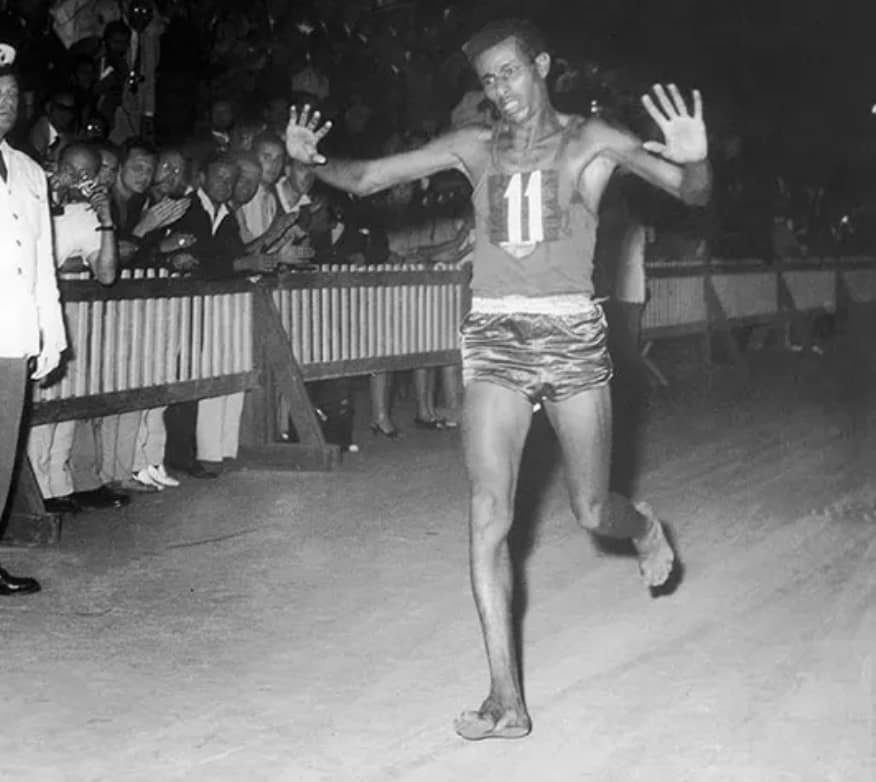
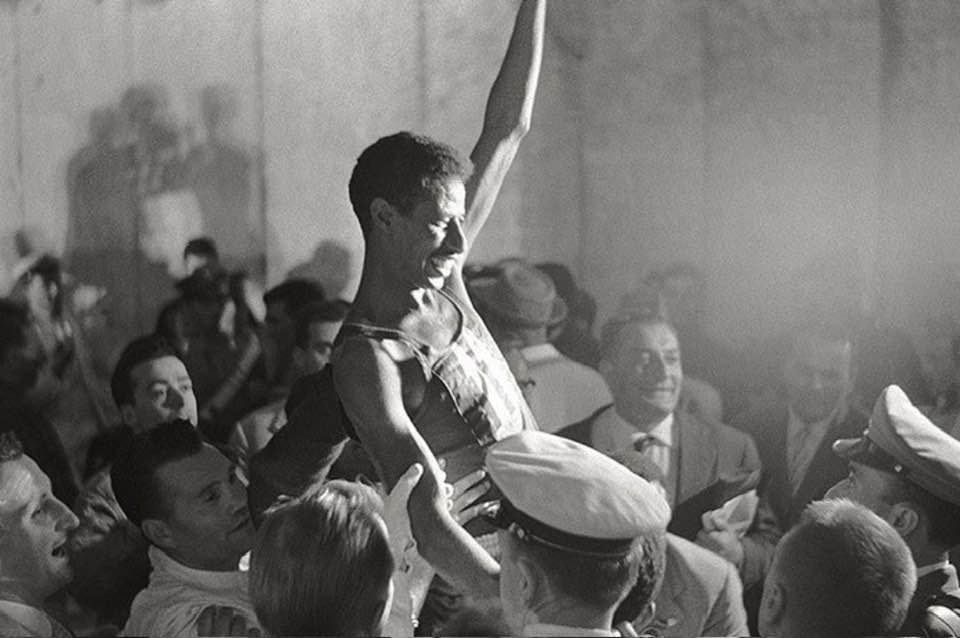
Following in the footsteps of Bikila was Mohammed Tlili Ben Abdallah, a Tunisian athlete who competed as a long-distance runner in international track and field competitions. Abdallah, also known as Mohamed Gammoudi, did Africa proud in the Tokyo (1964), Mexico City (1968), and Munich (1972) Olympiads and recorded four medals, including a gold medal in the 5000 metres event in Mexico City. The Tunisian runner was also competitive at 10,000 metres. Kipchoge Keino from Kenya won the 1500 metres gold medal by defeating American favourite and world record holder Jim Ryun by 20 metres, the largest winning margin in the history of the event at this same 1968 Summer Olympics in Mexico City. Interestingly, Keino, a former Chairman of Kenyan Olympic Committee (KOC), accomplished the feat with a gall bladder ailment. From then onwards, runners after runners from East and North Africa have proved their worth in the endurance races at the highest level. Amongst whom were Kenya’s Seoul Olympic gold medalists, Paul Ereng and John Ngugi Kamau, and Moroccan Khalid Skah. Ereng was the surprise winner of the 800 metres race at the 1988 Summer Olympics. The University of Virginia graduate went on to produce a devastating finish to win the gold medal at World Indoor Athletics Championships in Budapest in 1989 and retained his title in Sevilla two years later.
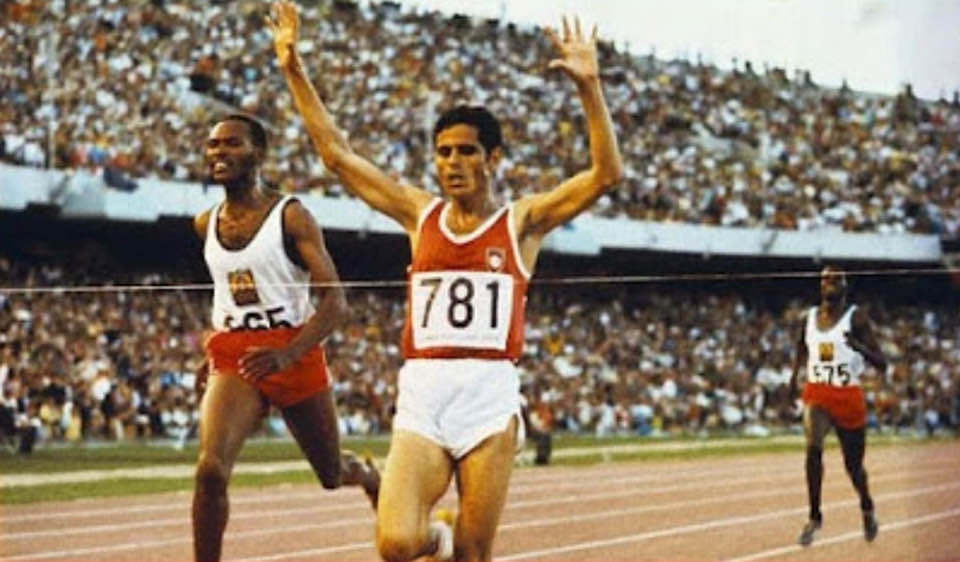
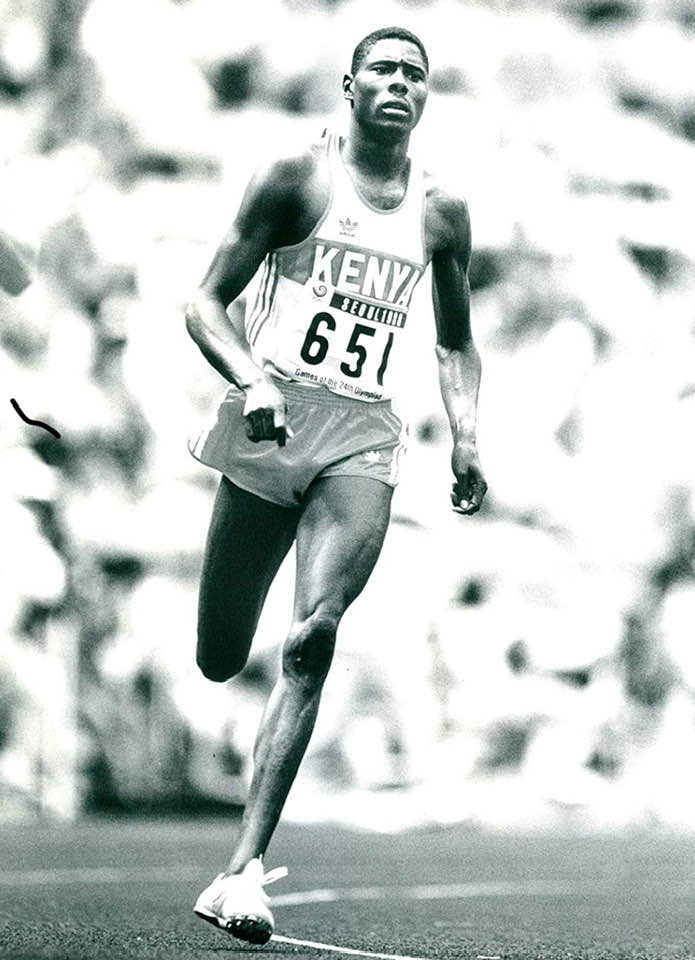
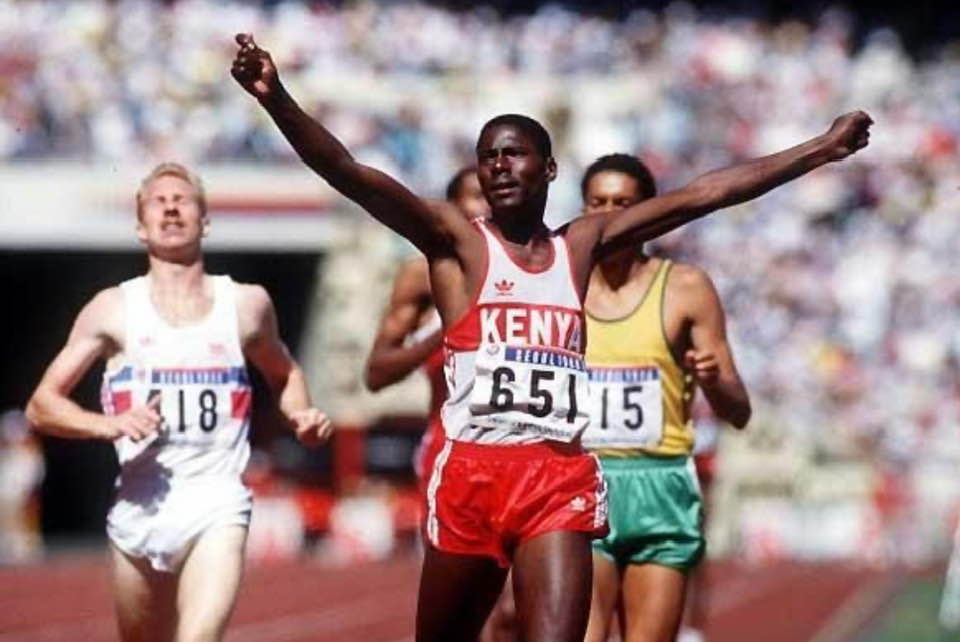
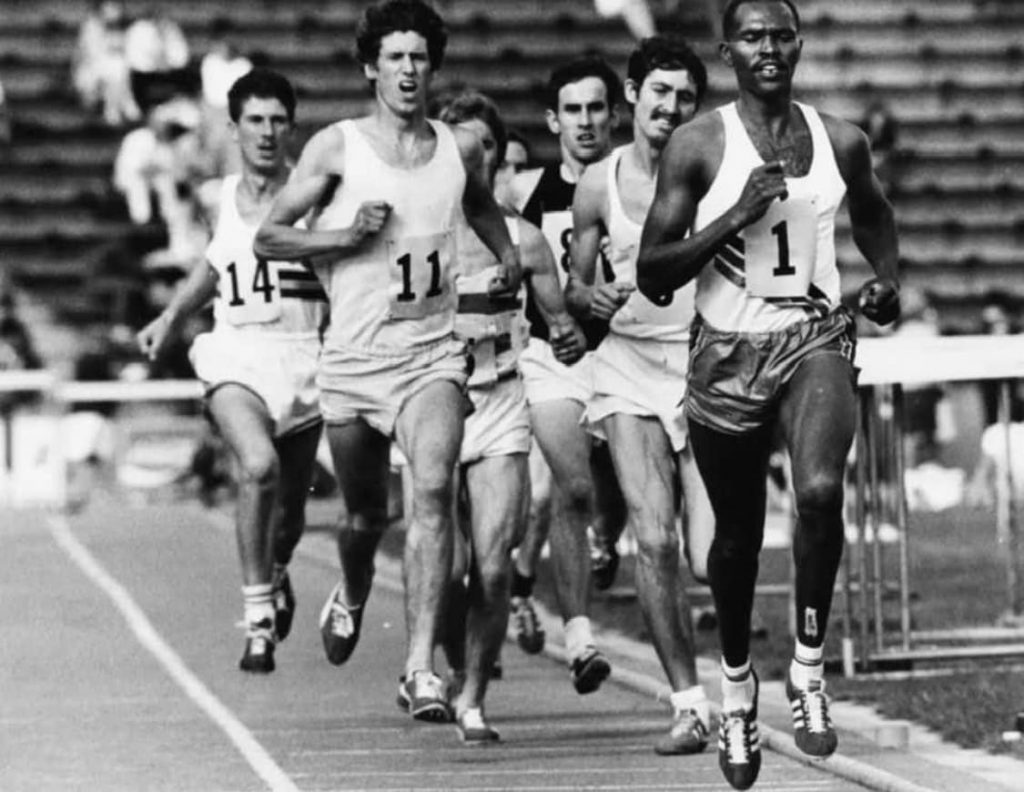
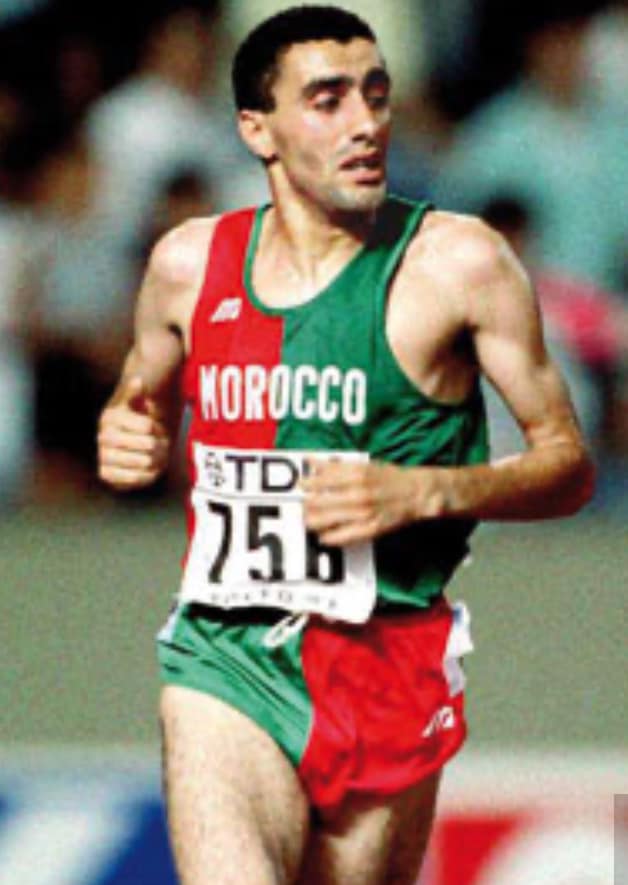
Kamau, a long distance runner, was the winner of the 5000 metres at the 1988 Summer Olympics, in Seoul, South Korea. The Moroccan track and field athlete, Skah, won the 10,000 metres gold at the 1992 Summer Olympics in Barcelona. Ethiopian long-distance track, road running athlete, Haile Gebrselassie, won two Olympics gold medals and four World Championship titles over 10,000 metres. Gebrselassie, who remains the world record holder in the 10-mile run is popularly regarded as the greatest long-distance athlete of all time.
In the 1987 World Athletics Championships in Rome, Kenya’s Paul Kipkoech set the pace by becoming Africa’s first world champion after dominating the men’s 10,000 metres, setting a then championship record of 27:38.63 in the process. After Kipkoech, the continent had the likes of Noureddine Morceli of Algeria, a middle-distance runner who was the winner of the 1500 metres at the 1996 Summer Olympics. Morceli won three straight gold medals at that distance at the World Championships in Athletics. The 1989 Algerian national champion in 1500 metres set world records in the 1500 m and 3000 metres. Hicham El Guerrouj, another Moroccan middle-distance runner, is the current world record holder for the 1500 metres and mile events, and the former world record holder in the 2000 metres. Guerrouj is the only man since Finland’s Paavo Nurmi to win a gold medal in both the 1500 m and 5000 metres at the same Olympic Games. Kenenisa Bekele of Ethiopia and David Rushida of Kenya also made their marks in the endurance races at the 2008 Beijing and 2012 London Olympics respectively.
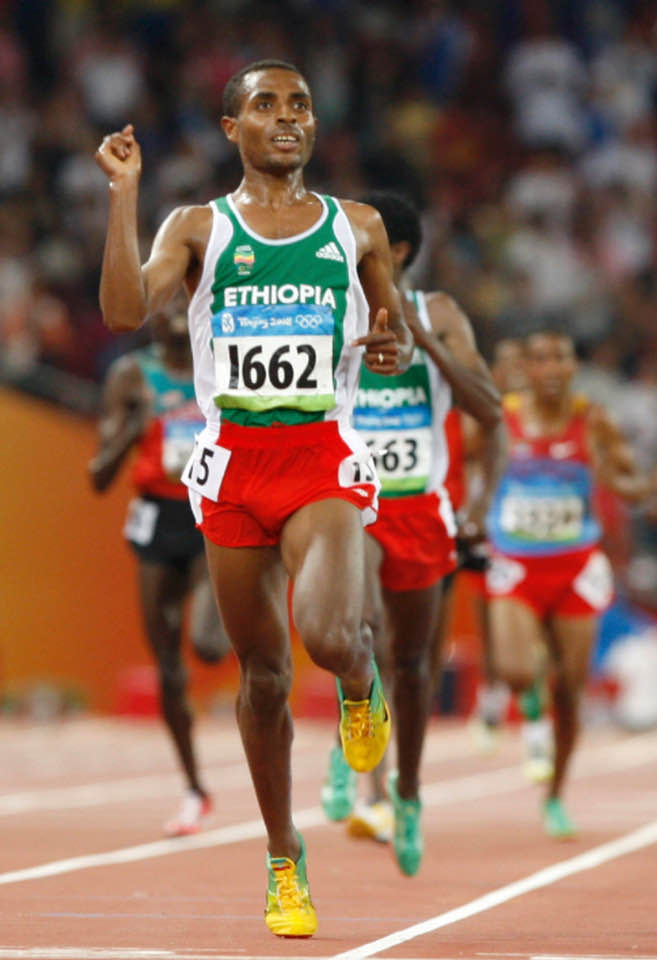
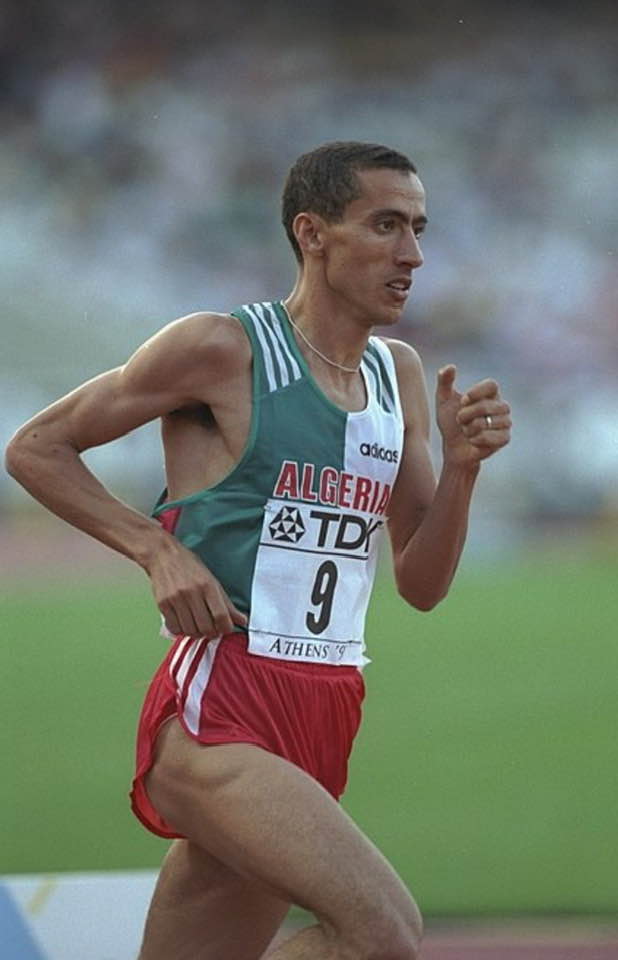
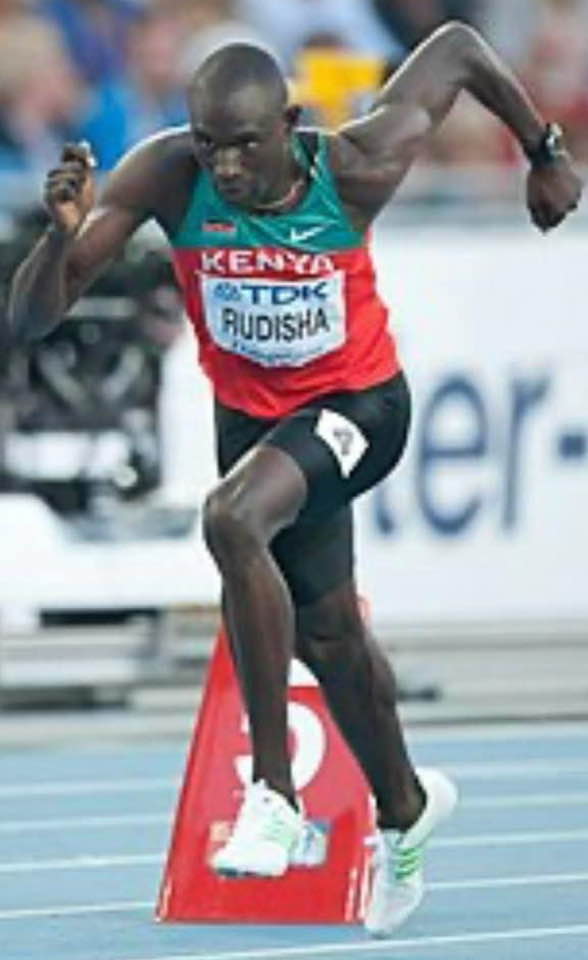
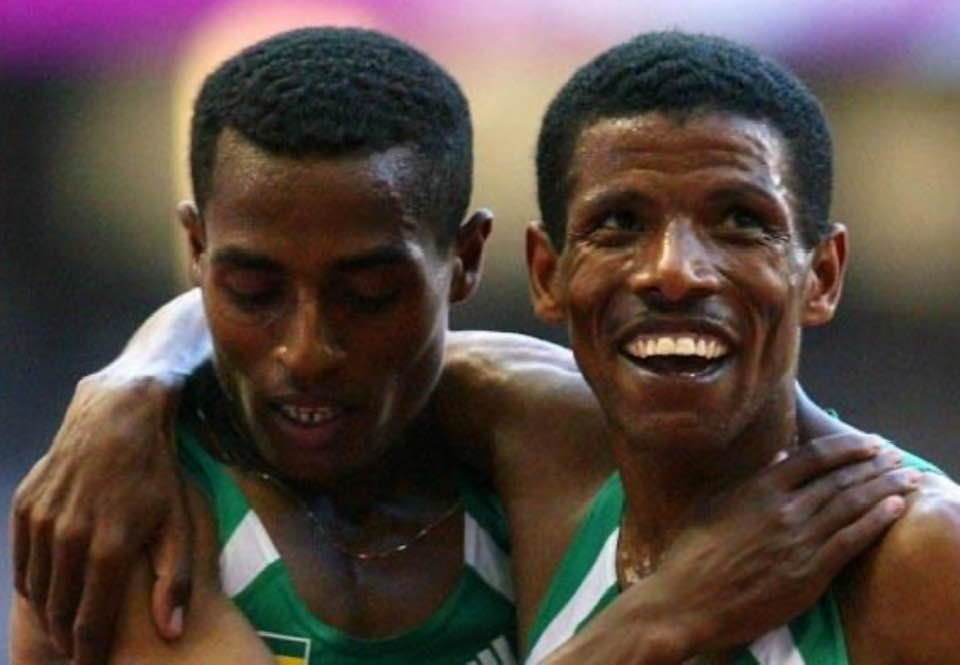
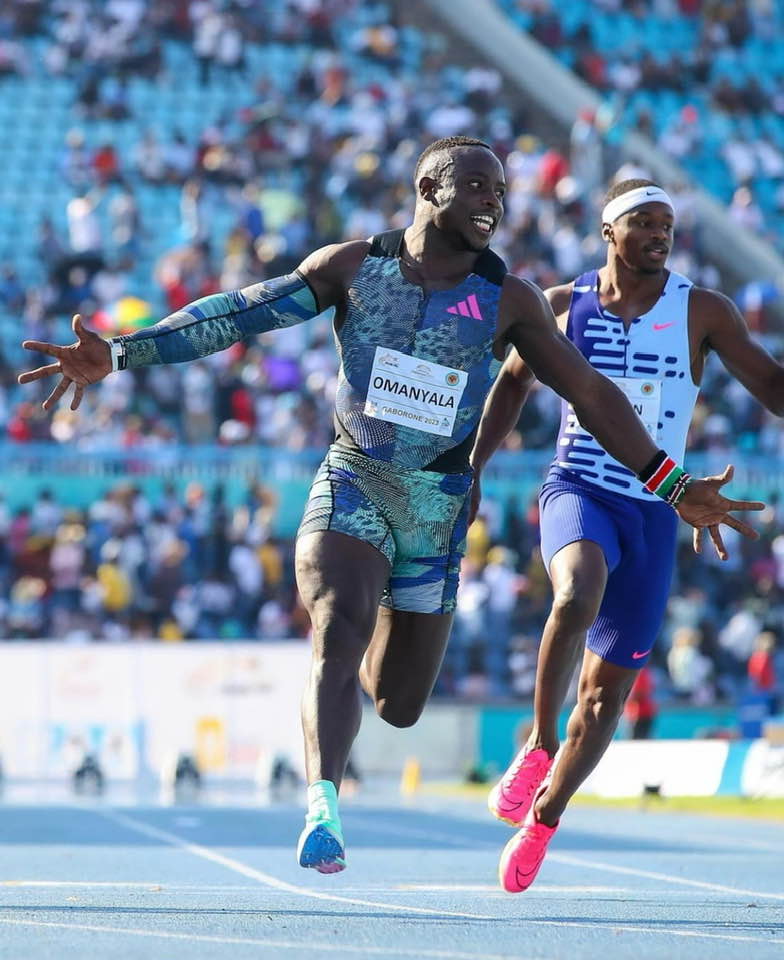
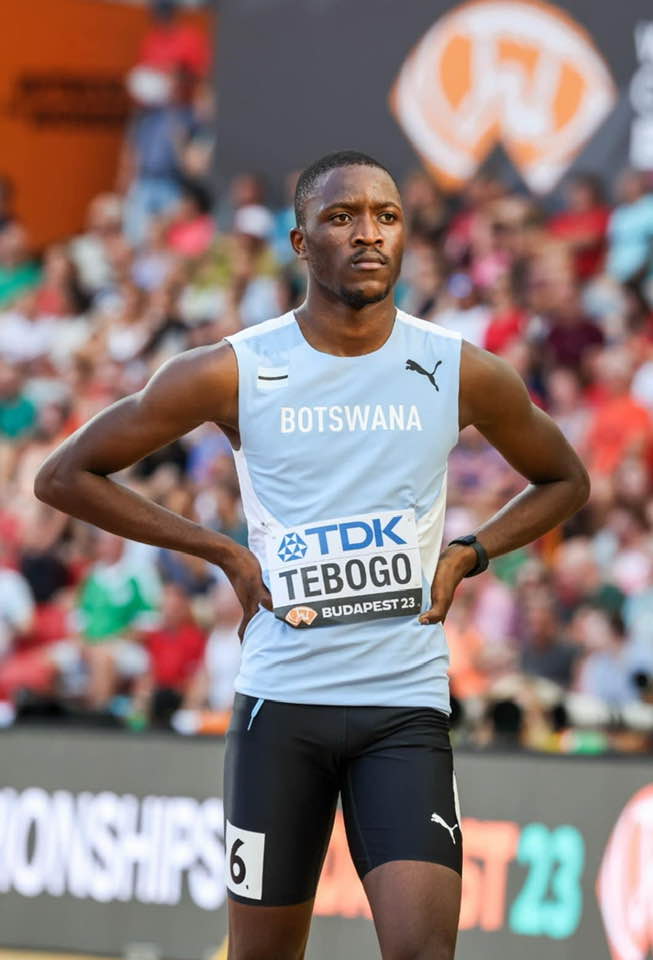
Obviously the emergence of African elite athletes at the middle distance, long distance and marathon races was already noticeable since the 1960 Summer Olympics in Rome, but the accomplishment of John Akii-Bua, a Ugandan hurdler, took the whole world by surprise in the 1972 Munich Olympics Games. Akii-Bua was the first Olympic champion in this category from Africa when he won the gold medal of 400 metres hurdles. The recipient of the Silver Olympic Order was introduced to the 400 meters hurdles by his British-born coach Malcolm Arnold.
That was clearly a revolutionary achievement for the continent. Since the exploits of Akii-Bua in 1972, African athletes have been pushing the boundaries in the sprints and field events at the two elite competitions. These were unusual terrains for African athletes before this time. For instance at the inaugural edition of the World Athletics Championships held in Helsinki in 1983, African men’s athletes started humbly with three medals out of the total 123 at stake in the championship. Nigeria’s Ajayi Agbebaku became the first African World Championships medallist when he clinched bronze in the men’s triple jump – a field event. That was definitely a “golden” bronze because no African athlete had managed to win a medal at any field event at either the Olympic Games or the World Athletics Championships before this historical moment. Moroccan Said Aouita won another bronze in the men’s 1500 metres and Ethiopian Kebede Balcha claimed silver in the men’s marathon. This was a landmark achievement for the continent and this was the springboard for future outings for athletes from Africa.
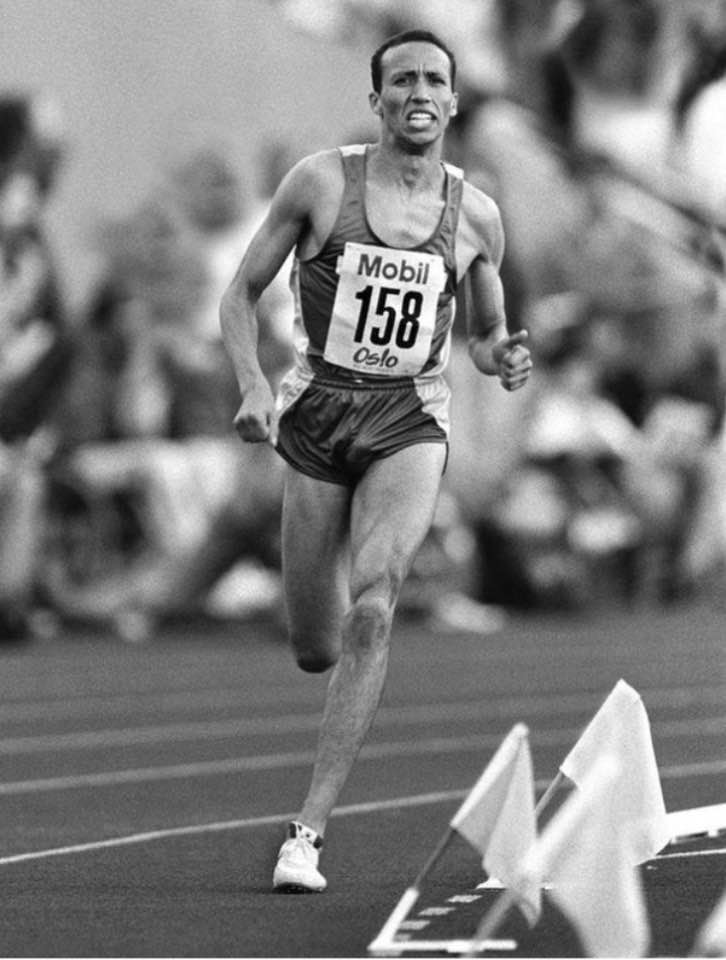
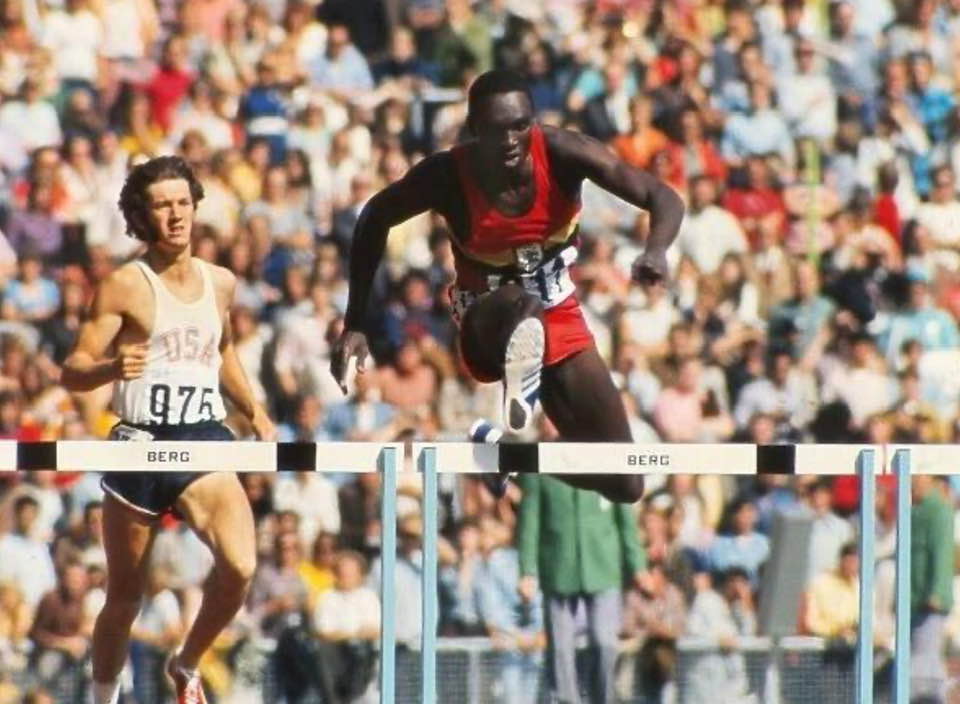
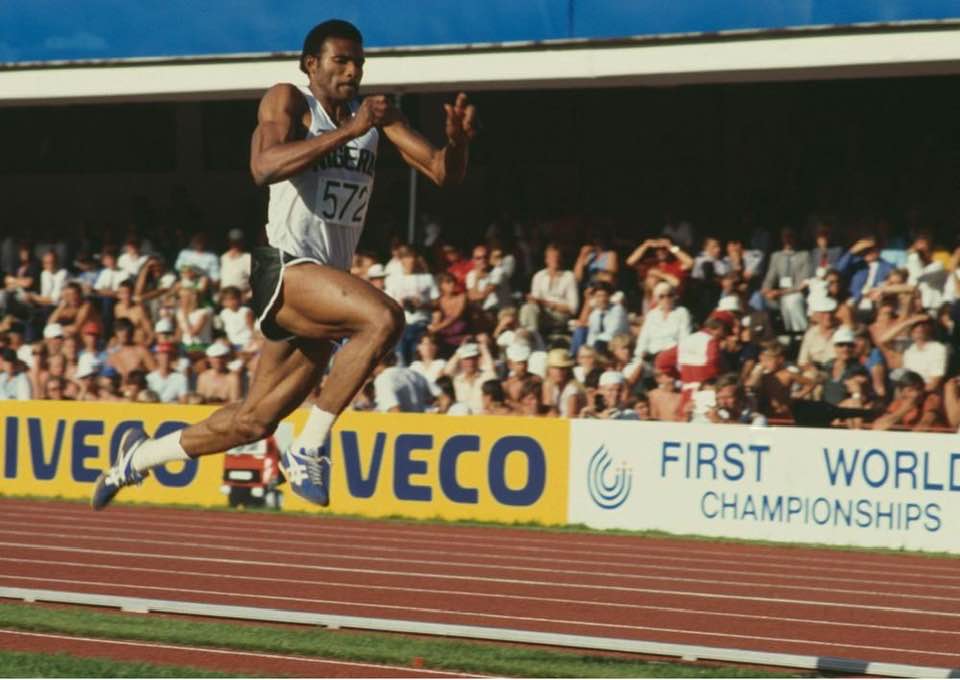
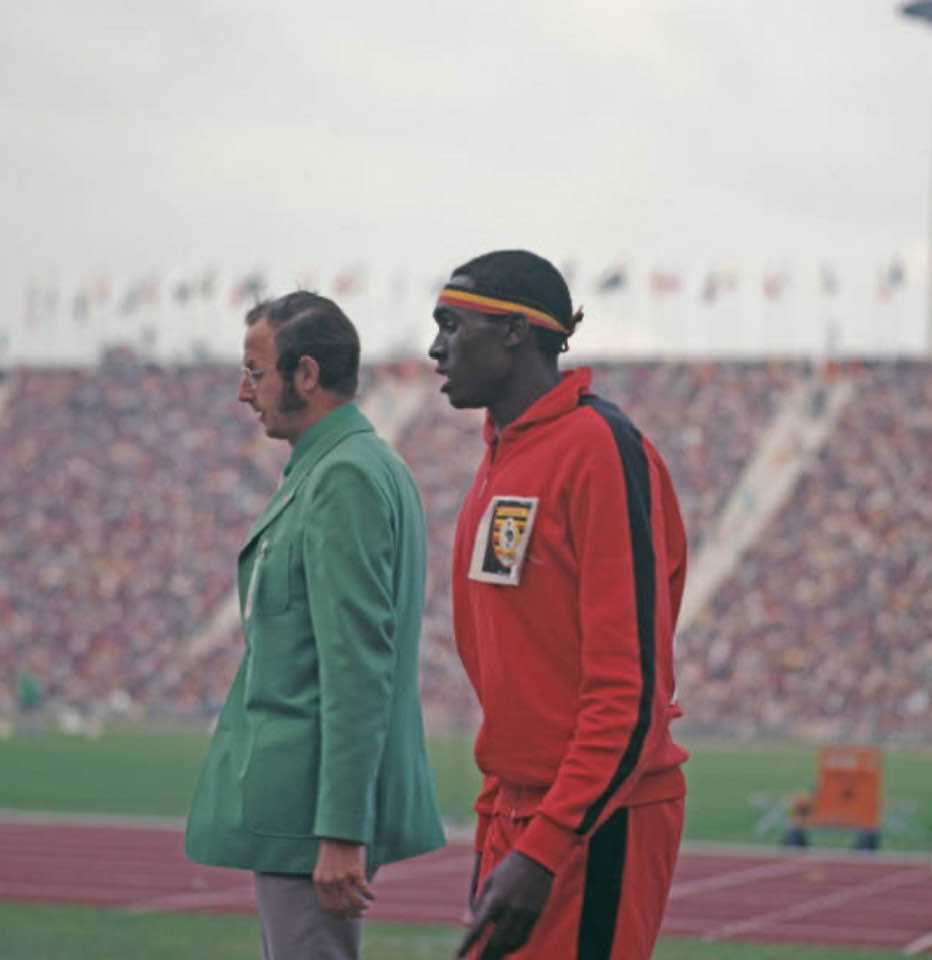
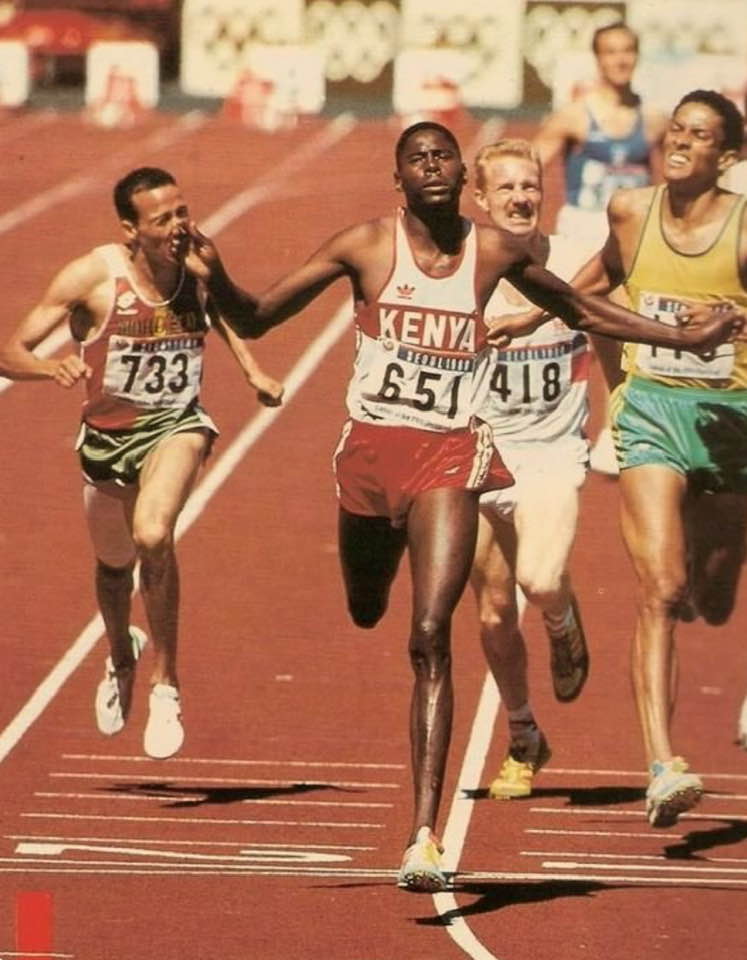
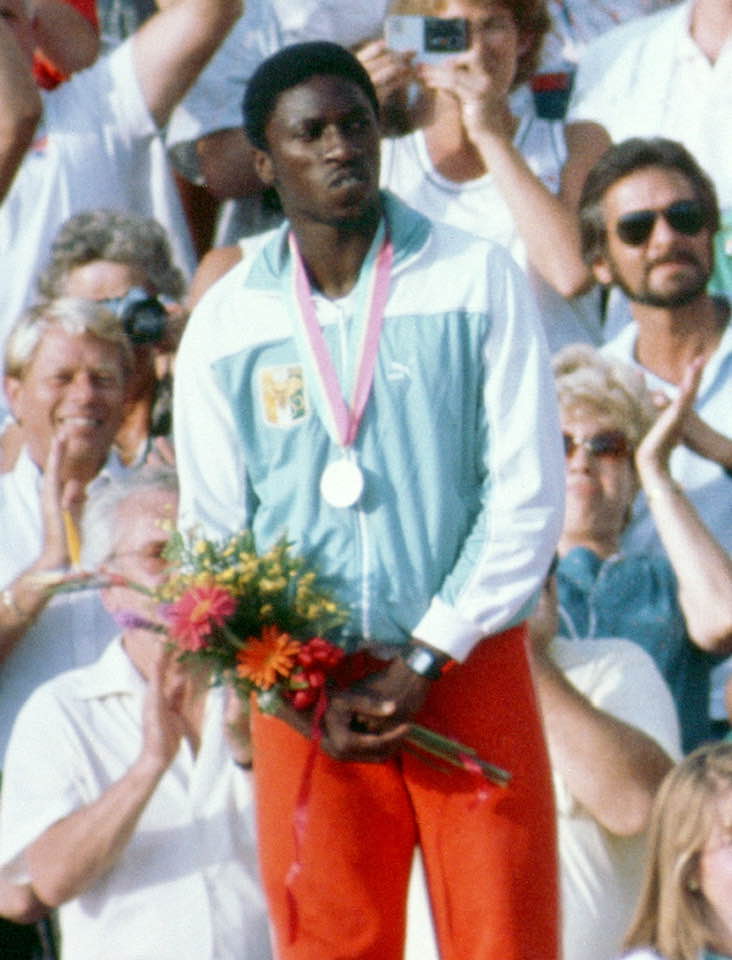
The Ivorian Gabriel Tiacoh’s 400 metres silver medal accomplishment at the 1984 Los Angeles Olympics was also a landmark success for the continent. At 20 years of age, Tiacoh aka Thunder thigh had become the first Olympic medal winner from any West African country. Who knows how much more he would have achieved had tuberculous meningitis not denied Africa this gem? He succumbed to the cold hands of death in 1992 in Atlanta, Georgia at a tender age of 29.
A new generation of top athletes in the track and field from the continent later emerged in the 1990s, heralding a completely new era. Before this period (safe for Ugandan’s John Aki-Bua’s exploits at 1972 Munich Olympics in the 400 metres hurdles) all of the world titles won by African athletes had been claimed in middle and long-distance events. However, Zambia’s Samuel Matete continued where Akii-Bua stopped when he stormed to gold in the men’s 400 metres hurdles again in 1991 World Athletics Championships in Tokyo, while his fellow African Frankie Fredericks of Namibia won a silver medal in the men’s 200 metres and would become world champion two years later in Stuttgart. This is the only gold medal in the short sprint in the history of Africa’s athletics at either the Olympics or World Athletics Championships till date and this cemented Frankie’s legend on the continent. Matete already set the stage for this astonishing feat after racing to an African record of 47.10 at the Weltklasse Zurich meeting a couple of weeks earlier. That record still stands almost 33 years on, and the performance places him ninth on the world all-time list. He later won silver medals in the next two editions of the World Championships and another at the Atlanta 1996 Olympic Games. Wayde van Niekerk from South Africa also entered the record book at the 2016 summer Olympics in Rio de Janeiro when he won the 400 metres gold medal with a world record time of 43.03 seconds (reaction time 0.181 s) at age 24 years and 30 days, beating the time of 43.18 seconds set by American Michael Johnson during the 1999 World Championships in Seville, Spain. This became the second gold medal from the sprints from Africa at any elite championship after Frederick’s efforts years back in Stuttgart. While Van Niekerk’s effort is the pioneering achievement in a long sprint (400 metres), Frederick’s was in the short sprint (200 metres). Van Niekerk is the current world and Olympic record holder, having set the record in the Olympic finals in Rio. He also became the first sprinter in history to have run the 100 metres in under 10 seconds, 200 metres in under 20 seconds, and 400 metres in under 44 seconds.
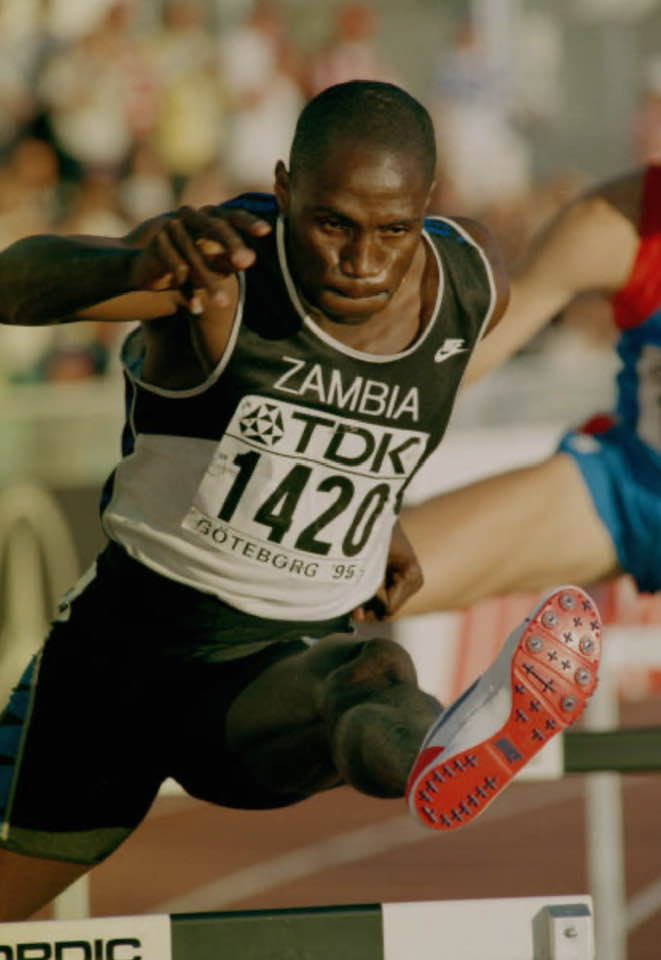
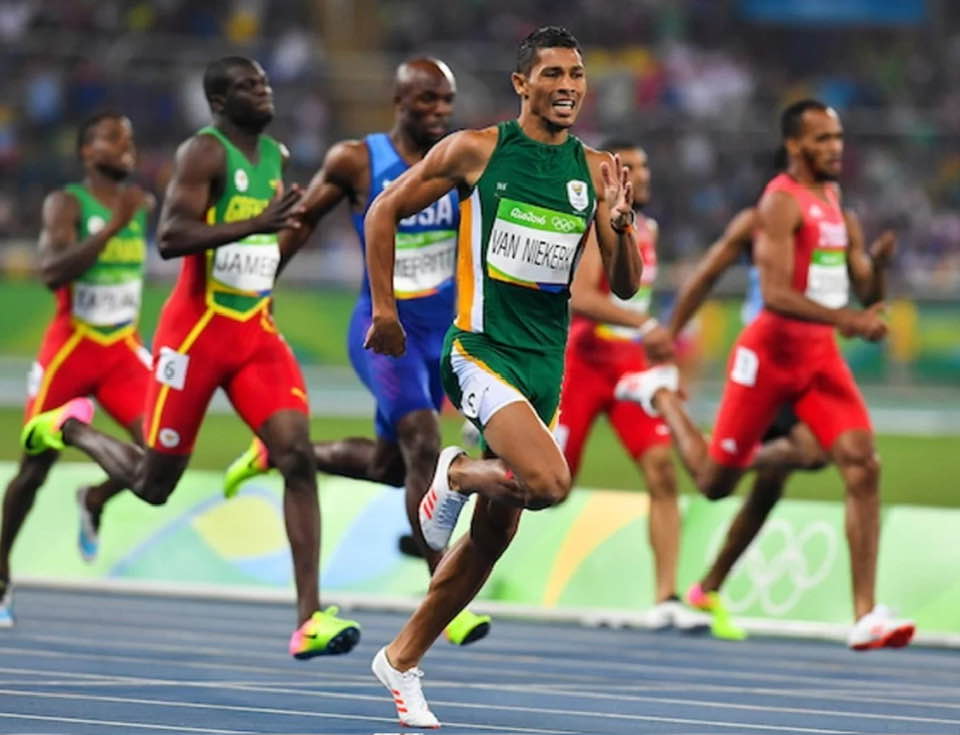
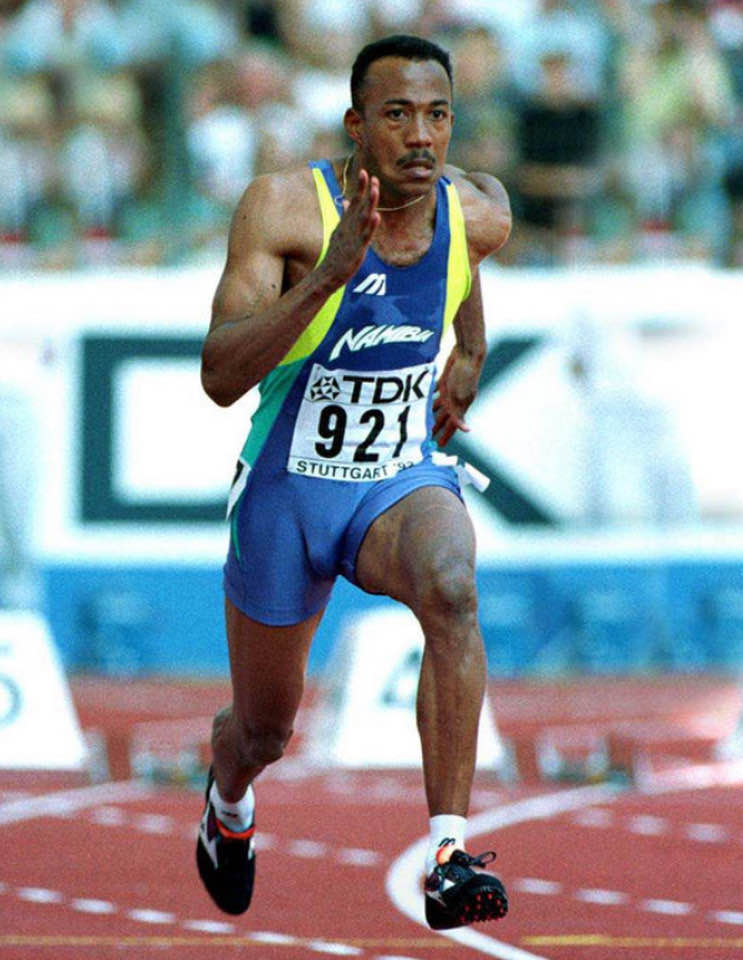
But there is still a jinx that needs to be broken. Despite all these giant strides, no Olympic gold medal from the short sprint (100m and 200m) is yet to grace the sock drawer of Africa’s athletics up till now. As the 2024 Summer Olympics kicks off in Paris today, the burden of delivering this Holy Grail of Africa’s athletics rests on the shoulders of the duo of Kenya’s Ferdinand Omanyala, who is the African record holder and the ninth-fastest man of all time in 100 metres with a time of 9.77 seconds and the young Letsile Tebogo of Botswana, who achieved the silver medal at the 2023 World Championships in the 100 metres and followed it up with a bronze medal in the 200 metres five days later. How far can these two take Africa in the short sprints in this Summer Olympics?, Will they finally break the jinx?, Only time will tell.
References
- ‘The rise of Africa at the World Athletics Championships’. By Yemi Olus-Galadima for World Athletics, July 2023.
- ‘The champion is still alive and active’. Saturday magazine Daily Nation, June 3, 2000
- “A comeback for Wayde not impossible”. Bloemfontein Courant. Piek, Morgan, 5 August 2021.
- “Ethiopian Runs Barefooted, Set Marathon Mark”. By Joseph Gazette. Associated Press May 8, 1961.
- “Personalities at Olympics: Akii-Bua the Best in Vest”. The New York Times. 4 September 1972
- “USA’s Noah Lyles wins 100m world title as Hughes seals bronze for GB”. The Guardian, 20 August 2023.
- “Omanyala: From rugby to second fastest man on earth”. Mwamba, James 24 September 2021 for Daily Nation.
Please follow this link to subscribe to our YouTube channel https://youtube.com/@moorsportz?si=unih3y5b3GSStu1h
Contributions from Mr Ogie Eboigbe, former Head PR at United Bank of Africa (UBA) and a member of Sportshaq MasterClass forum.
Edited by Bimbo Ajayi
